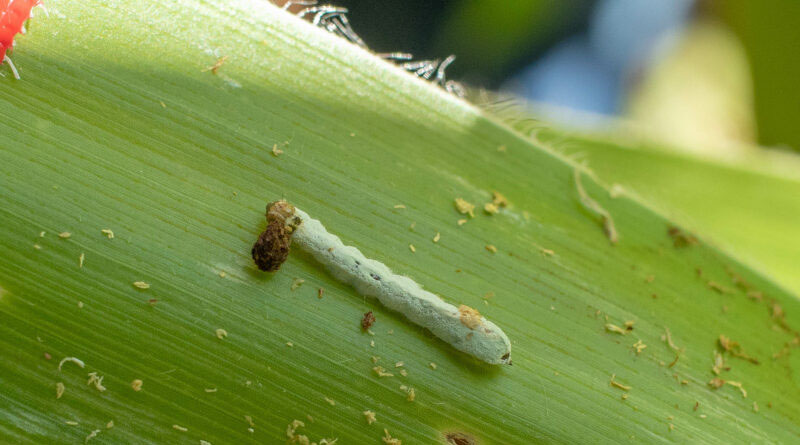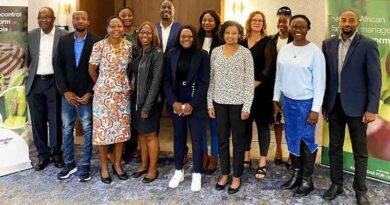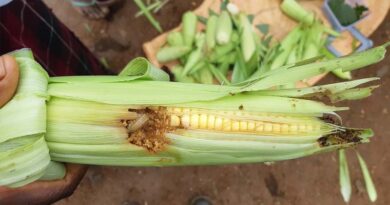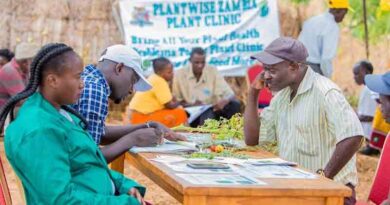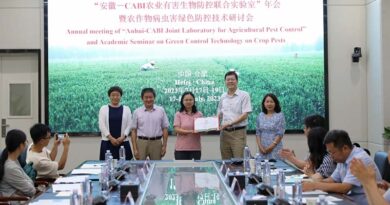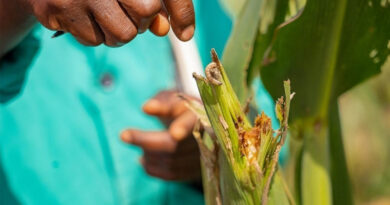Successful on-farm Trials Using Metarhizium Rileyi in Zambia
09 April 2024, Zambia: The fall armyworm (Spodoptera frugiperda) has wreaked havoc on Zambia’s agriculture, devastating smallholder farmers with staggering losses. But amidst the struggle, a promising solution emerges.
Through activities on the PlantwisePlus programme and the Village-based biocontrol of fall armyworm in Zambia project, funded by ACIAR, CABI has delved into combating this agricultural menace with various biological control options.
Fungus to fight fall armyworm in Zambia
Metarhizium rileyi, a highly specific fungus that kills fall armyworm, stands out among these. What’s even more remarkable? Scientists from Zambia Agricultural Research Institute (ZARI), University of Zambia (UNZA), and CABI in Zambia have identified the presence of this fungus naturally occurring in certain areas when fall armyworm started devasting maize, offering a beacon of hope in the fight against this invasive pest. In 2023, the CABI-led project, funded by ACIAR, embarked on a journey alongside key partners ZARI and UNZA. Their mission? To tackle the fall armyworm crisis head-on through village-based biocontrol initiatives. The project’s official launch marked the beginning of comprehensive field trials across various sites in Zambia.
How effective is Metarhizium rileyi?
The heart of these trials lies in the application of M. rileyi. The process involves using a mixture of a calculated amount of M. rileyi spores and local sand treatment and applying it in four maize sites infested with fall armyworm. Scientists applied the mixture every two weeks. To compare the efficacy of the fungus, the team also used other treatments: sand only, chemical, and no application. This innovative approach, coupled with meticulous monitoring, aimed to evaluate the feasibility and effectiveness of M. rileyi as a biological control agent.
Despite facing challenges like drought in some trial sites, the results have been promising. Visual assessments revealed stark differences between treated and untreated plots, showcasing the efficacy of M. rileyi.
Notably, the fungal and chemical-treated plots exhibited substantial control over fall armyworm populations, with numerous dead specimens discovered in the fungal treatments. In the fungal-treated plots, there were also thriving populations of beneficial insects, which contributed to further pest suppression over time.
A sustainable approach
As we reflect on these encouraging findings, it’s evident that nature holds powerful solutions to our agricultural challenges. The local presence of naturally occurring M.rileyi offers a sustainable and environmentally friendly approach to combatting fall armyworms in Zambia and beyond. Looking ahead, continued research and collaboration are paramount. By amplifying our efforts and leveraging the potential of biocontrol, we can mitigate the impact of invasive pests, safeguarding livelihoods and fostering resilience in agricultural communities.
Also Read: India Initiates Anti-Dumping Investigation on Imports of Pretilachlor from China
(For Latest Agriculture News & Updates, follow Krishak Jagat on Google News)

